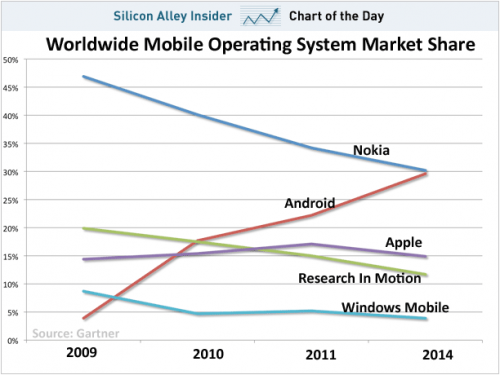 I’m at the ICTD conference at Royal Holloway, University of London, this week. Usually I wouldn’t be at a conference full of academics and researchers, but Tim Unwin (conference Chair), was interested in having a practitioner panel leading it off, of which I was a part. It’s a conference of very intelligent and driven people, with a lot more patience than myself, studying a lot of what’s going on in the ICT space as it relates to development in Africa, Asia and South America.
I’m at the ICTD conference at Royal Holloway, University of London, this week. Usually I wouldn’t be at a conference full of academics and researchers, but Tim Unwin (conference Chair), was interested in having a practitioner panel leading it off, of which I was a part. It’s a conference of very intelligent and driven people, with a lot more patience than myself, studying a lot of what’s going on in the ICT space as it relates to development in Africa, Asia and South America.
More Research in/of Africa, by Africans and African Institutions
One of the people that I’ve been speaking a lot with here is Shikoh Gitau (on Twitter), a Kenyan lady who has spent the last few years down at the University of Cape Town doing research. In the talk about “ICTD Research by Africans: Origins, Interests, and Impact” by Gitau S; Plattiga, P and K.Diga, there were some very interesting points given and a great argument made for why Africans need to be involved more.
“African research agendas need to involve Africans more”
– Geoff Walsham
It’s no surprise that most of the ICT research comes from South Africa, followed by Nigeria and Botswana. But even if you added up all the research done in all of Africa, it is only 9% of the research done in Africa is done by African institutions.
Who are the researchers in Africa?
This, of course, is what Shikoh and her team looked into. Here’s where you can help to. What are the African ICT research institutions? What are the publications?
- University of Cape Town
- Research ICT Africa
- The African Journal of Information and Communication
- Microsoft Research, particularly Jonathan Donner in Cape Town
- Nokia Research in Kenya
Add any ones that you know to the comments below and I’ll add them to the list above.
Thoughts on Doing More
One of my questions about why there isn’t more African ICT research was whether this was a supply and demand problem. Is it because there aren’t enough researchers in Africa? Not enough research institutions? Or, is it because the people paying for and funding research are only funding researchers in their own back yard (the US and Europe)?
Part of the answer seems to lie in the lack of incentives for African academics to get away from “just” lecturing and into research. Another seems to be the lack of funding organizations looking for Africans to do the actual research.
I’m intrigued enough by this that I’m thinking of how the iHub can be used to support African researchers. If that interests you, let me know.



